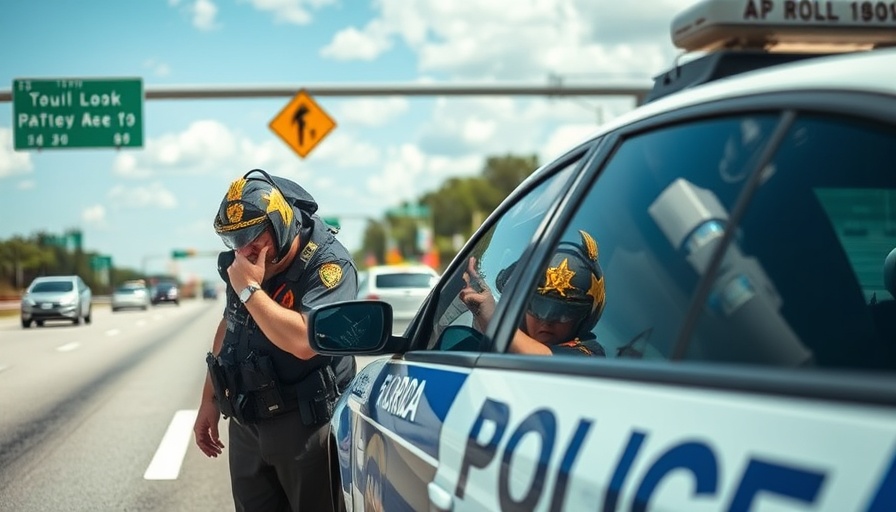
Florida's Troopers Take on New Roles in Immigration Enforcement
In a significant policy shift, Florida Governor Ron DeSantis has announced that the Florida Highway Patrol (FHP) will now enforce federal immigration policies as part of a broader initiative to crack down on illegal immigration. This expansion comes as more than 1,800 troopers have completed training under the 287-G program, allowing local law enforcement to participate in federal immigration enforcement efforts. The initiative aims not only to apprehend illegal immigrants but also to enhance collaboration between various law enforcement agencies.
What's Driving These Changes?
Florida’s intensified approach to immigration enforcement can be traced back to Governor DeSantis's ongoing commitment to align the state with President Trump's controversial immigration policies. Since the launch of the 287-G program in Florida, troopers have reportedly apprehended nearly 3,000 individuals suspected of illegal immigration. The initiative has sparked debates about its implications for community relations and public safety, as concerns arise regarding overreach and the treatment of undocumented individuals.
The Role of Florida Highway Patrol
Florida Highway Patrol has not only ramped up its enforcement tactics but has also established new specialized units focusing exclusively on immigration enforcement. These dedicated troopers are expected to work closely with other local and federal law enforcement agencies to locate and apprehend undocumented immigrants deemed as criminal aliens. As Director Dave Kerner stated, “There is no other state in the country that can match our efforts.” This bold claim positions Florida at the forefront of the national immigration debate, as various states considering similar measures keep a watchful eye on the Sunshine State’s actions.
Impacts on Local Communities
The policy’s implications extend beyond law enforcement, affecting local communities significantly. As environmental advocates emphasize the importance of using law enforcement resources wisely, the push for such measures has raised fears among immigrant communities in Florida. Many wonder how these changes will influence their daily lives and interactions with law enforcement, potentially leading to heightened tensions and fear. While proponents argue this is essential for public safety, opponents highlight the need for a focus on community relations rather than punitive actions.
Trump's Tariff Policy Adds Uncertainty
Adding to the unpredictability of Florida’s socio-economic landscape, President Trump's recent extension of key tariffs poses challenges for businesses and consumers alike. These tariffs have ramifications for global trade, with industries in Florida, particularly agriculture and tourism, facing potential spikes in costs that could trickle down to consumers. Florida's economic resilience is put to the test as policymakers and business leaders navigate the complexities of a changing trade environment, striving to maintain economic stability while addressing domestic policy issues.
Looking Ahead: What’s Next for Florida?
As Florida continues to push the envelope on state-led immigration enforcement, observers are left to ponder what the future holds. Will these policies lead to cleaner enforcement strategies, or will they exacerbate divisions within communities? Furthermore, how will the state’s businesses adapt to the effects of ongoing tariff policies? The answers to these questions will unfold over time, and it will be crucial for residents and lawmakers alike to engage in discussions about the balance between safety, enforcement, and community trust.
 Add Row
Add Row  Add
Add 


Write A Comment